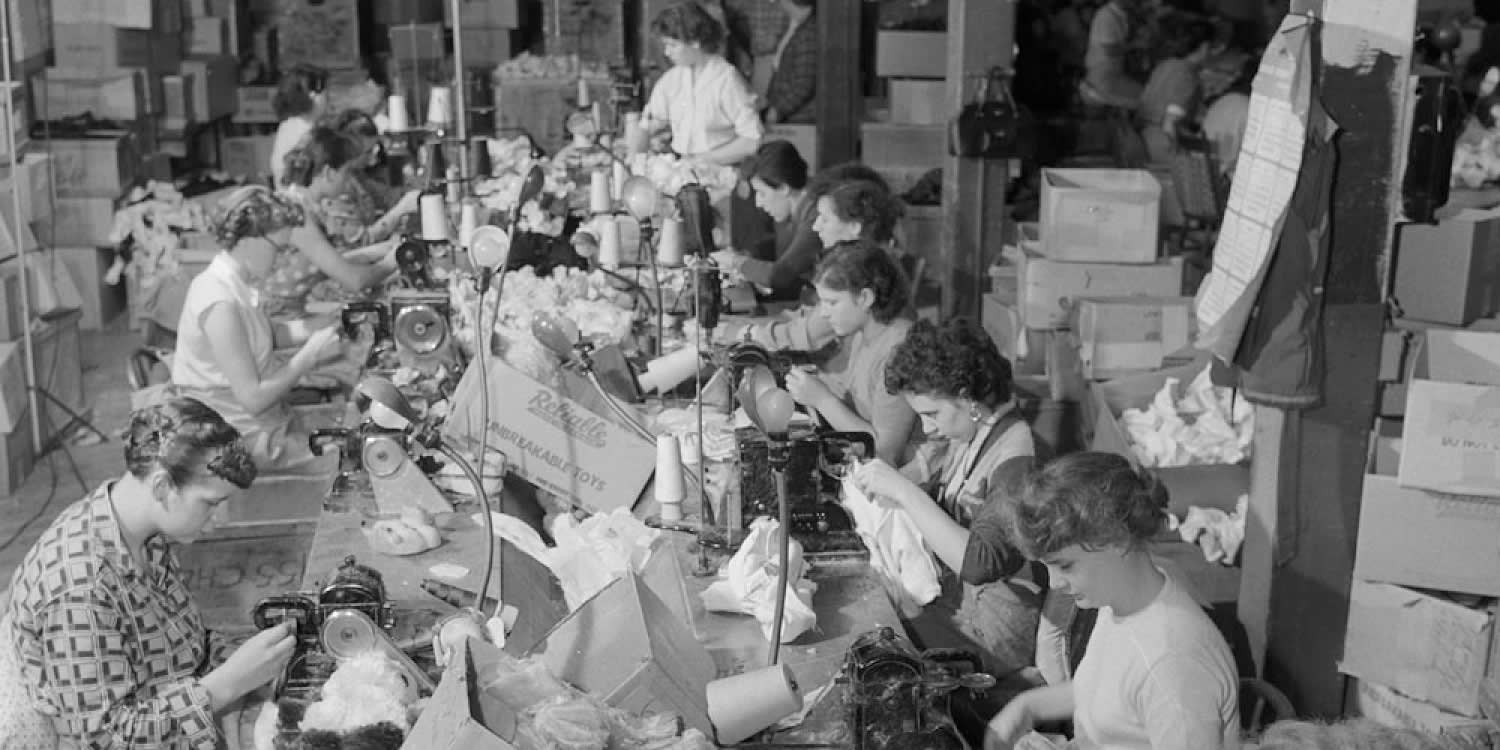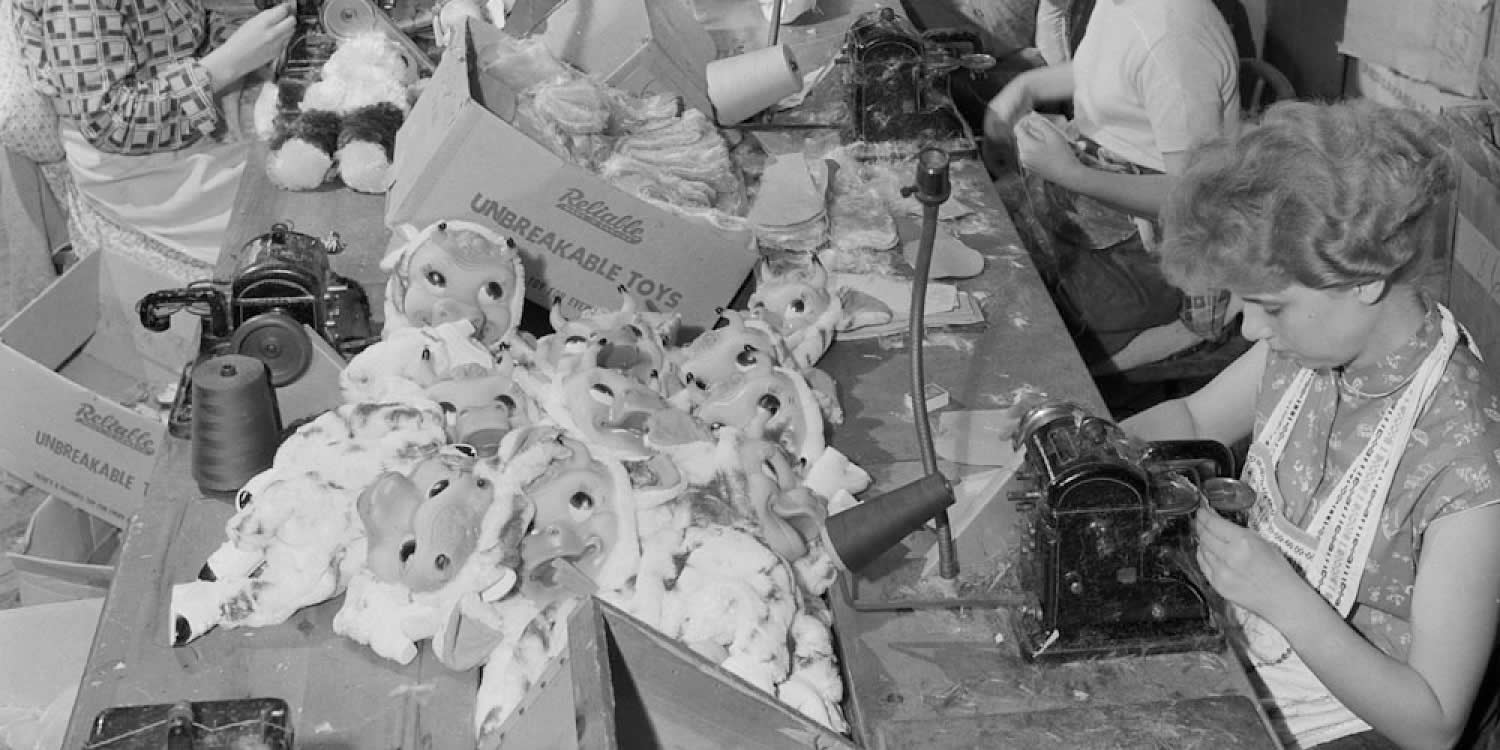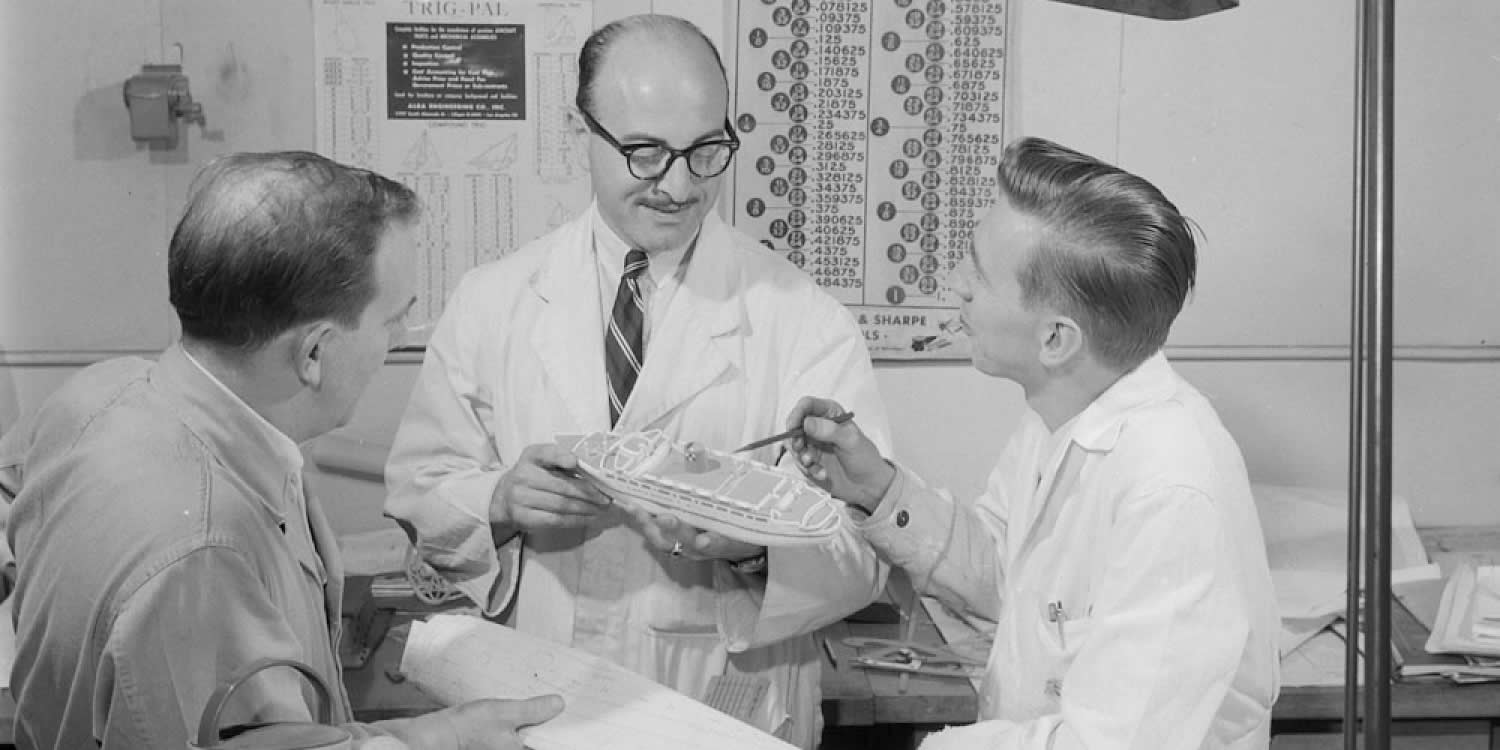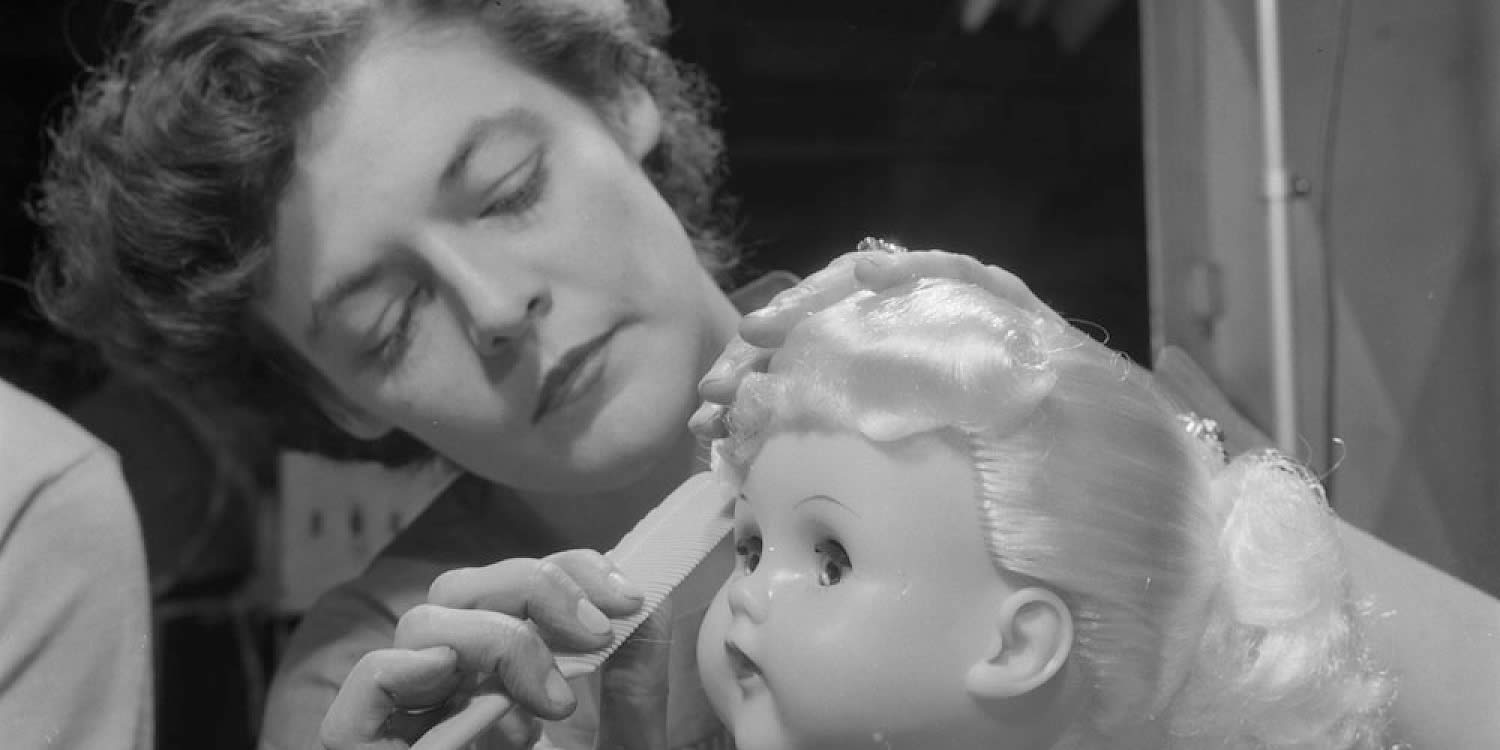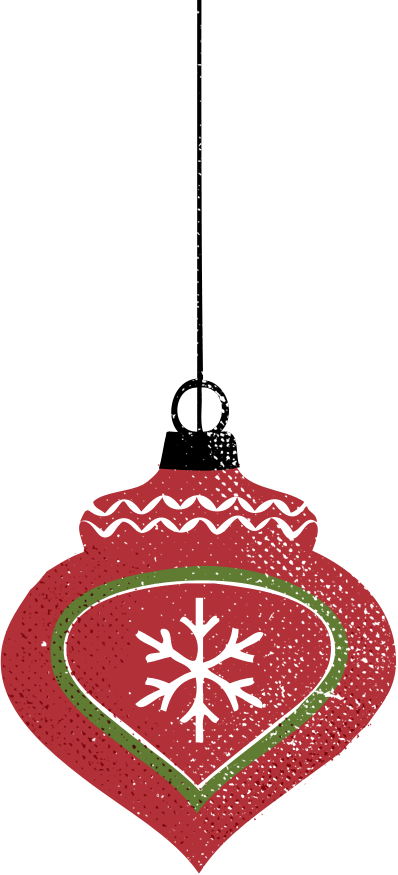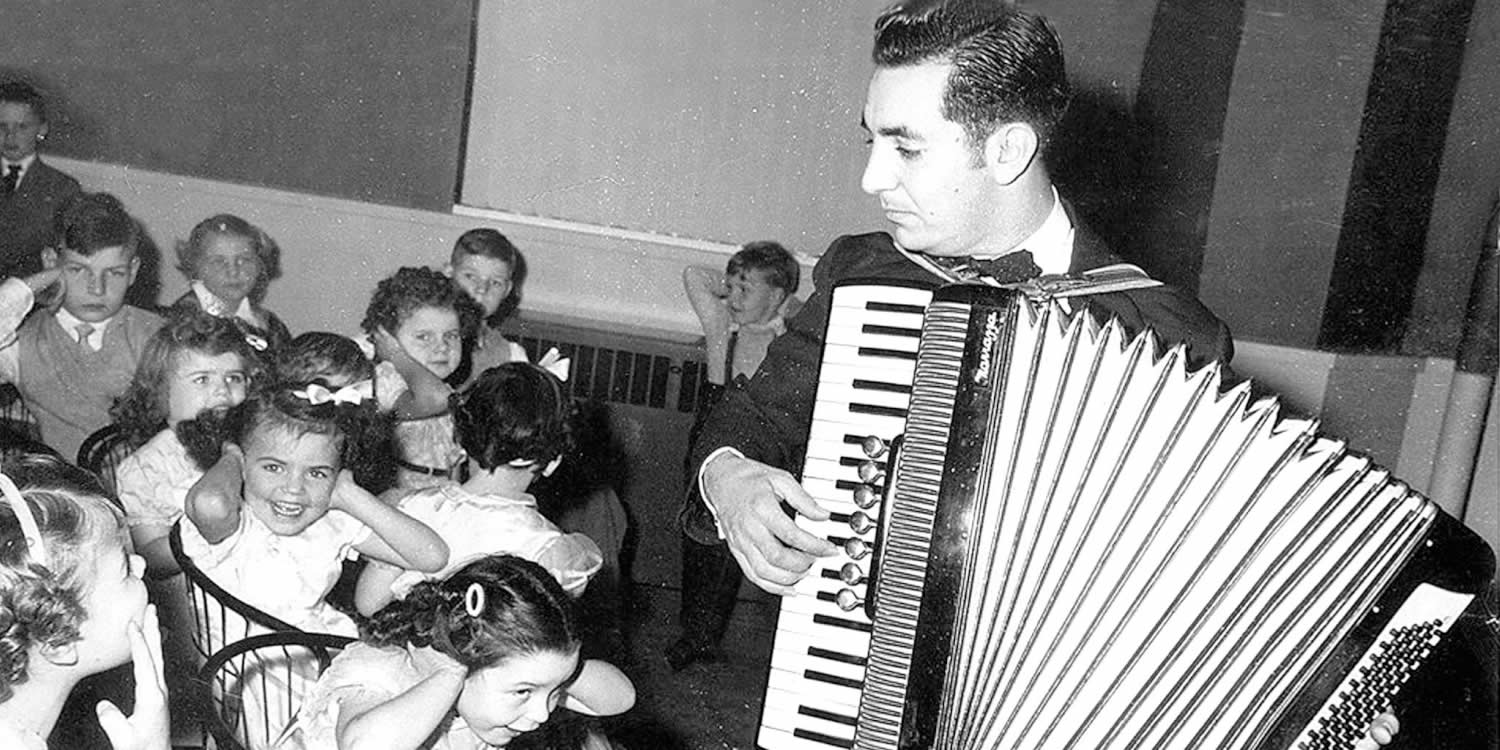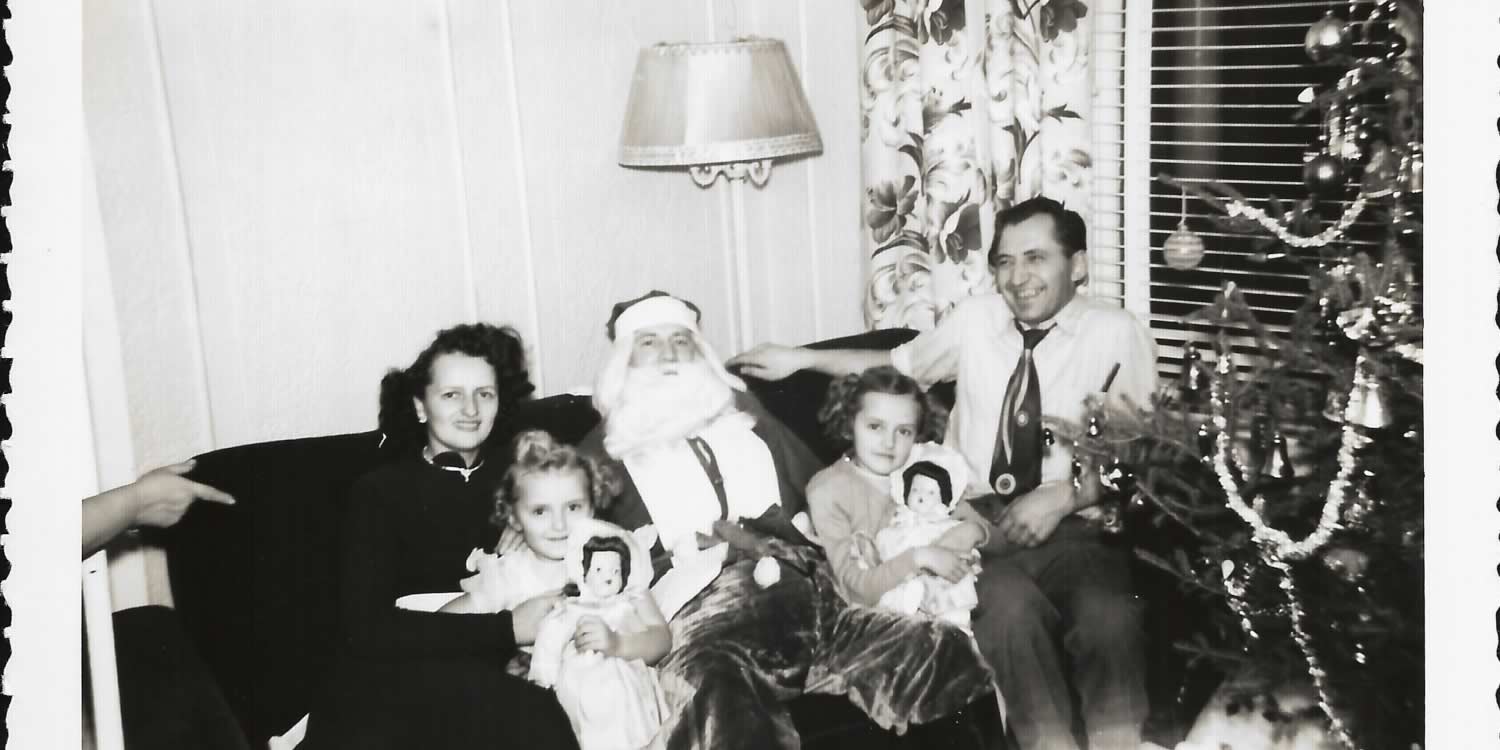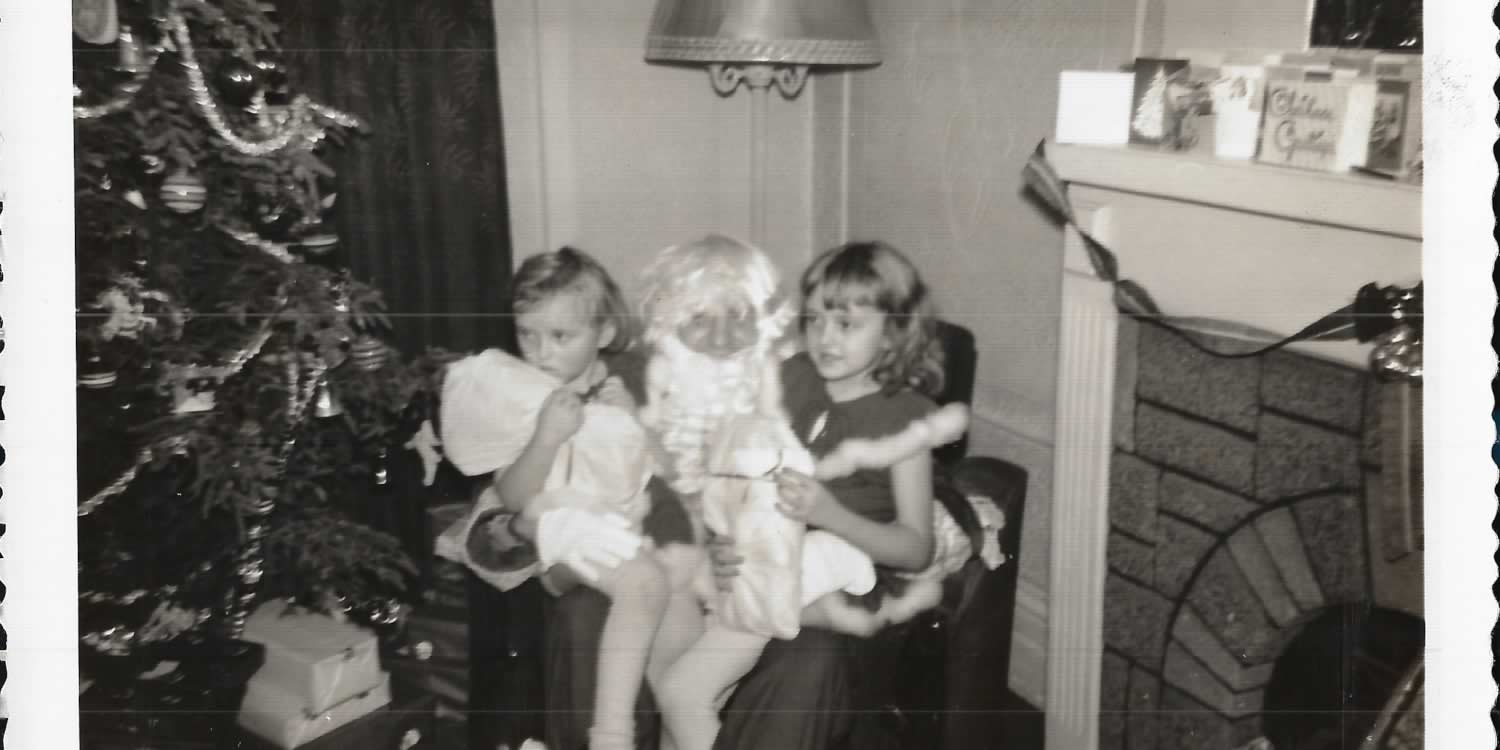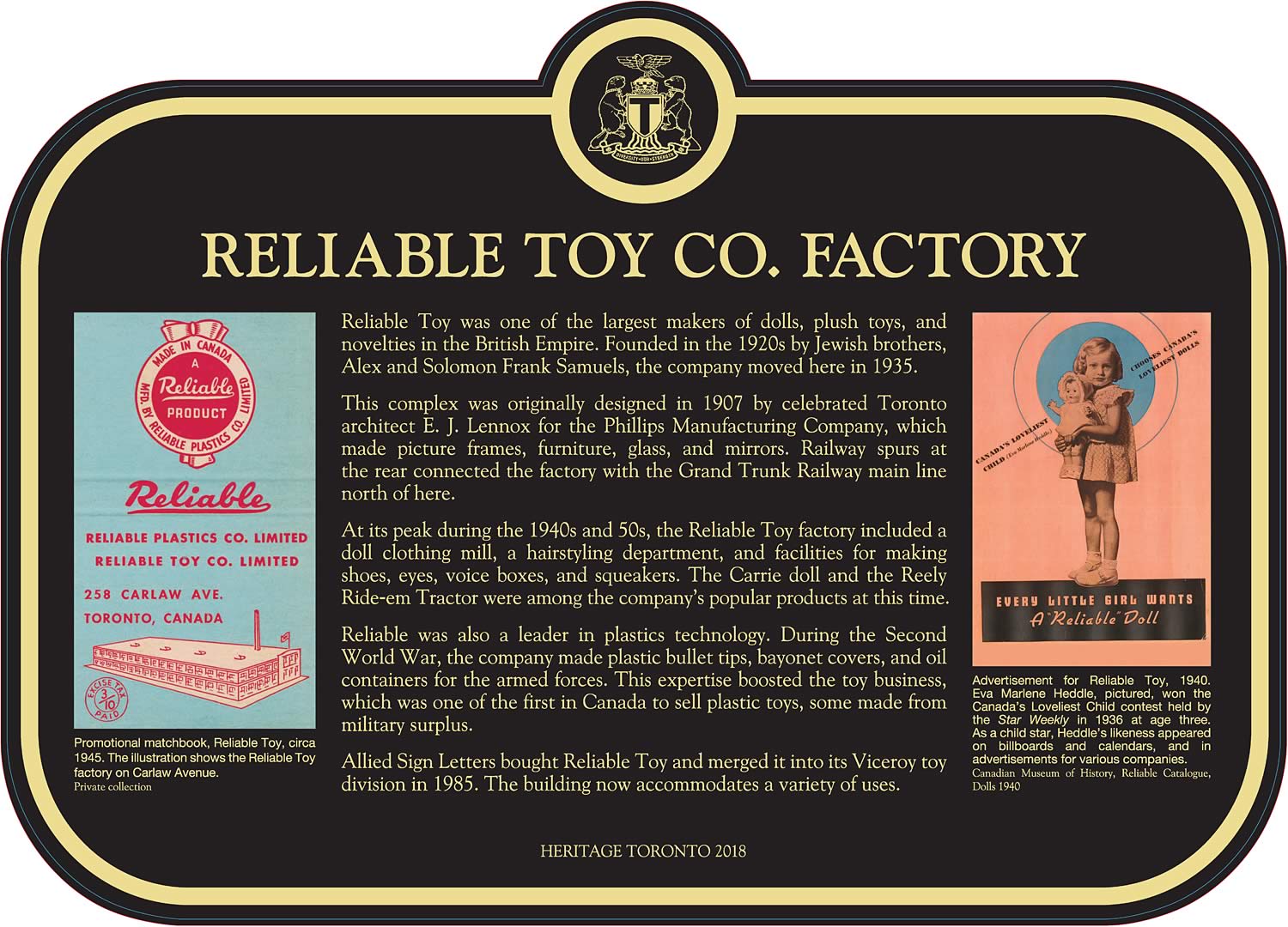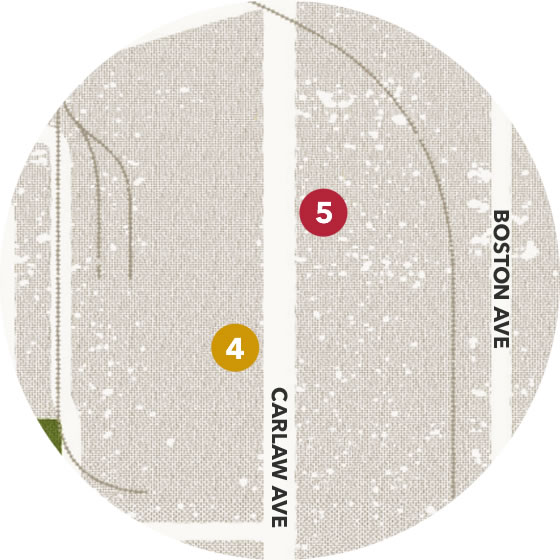Every little kid wanted a Reliable Toy.
Founded in the 1920s by Jewish brothers Alex and Solomon Frank Samuels, the Reliable Toy Company moved here in 1935.
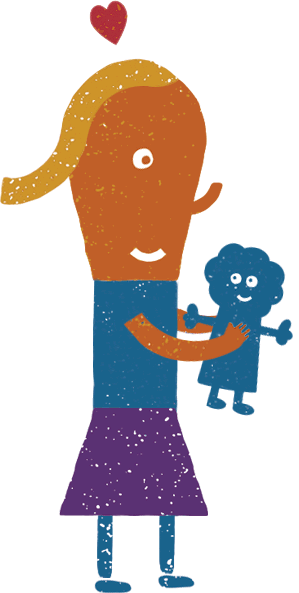
Founded in the 1920s by Jewish brothers Alex and Solomon Frank Samuels, the Reliable Toy Company moved here in 1935.
Reliable Toy Co.
Location:
260 Carlaw Ave.
Year:
1907
Architect:
E. J. Lennox
Made:
Furniture, glass, later toys and wartime products
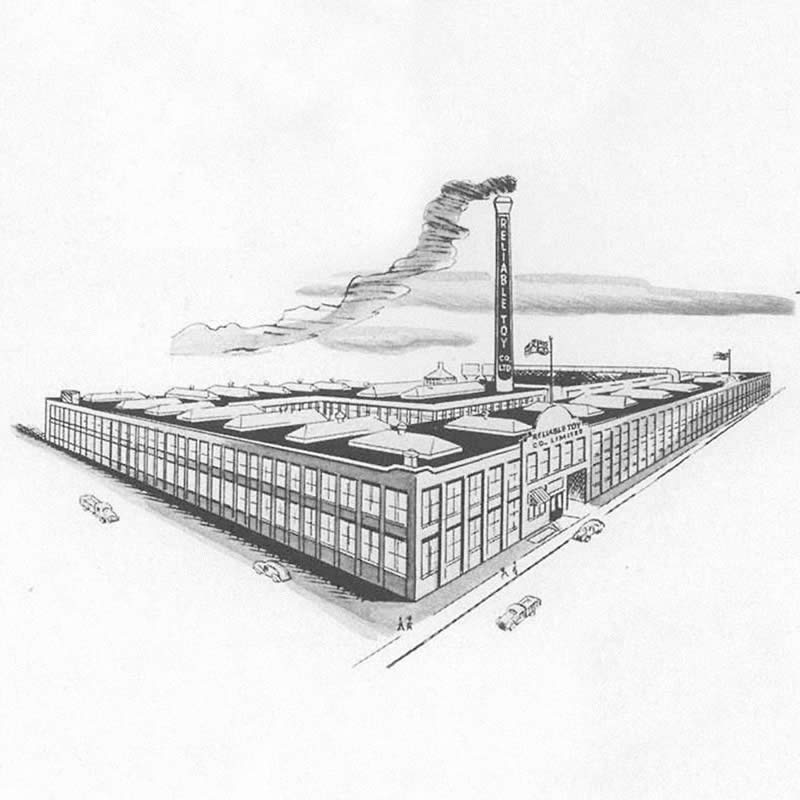
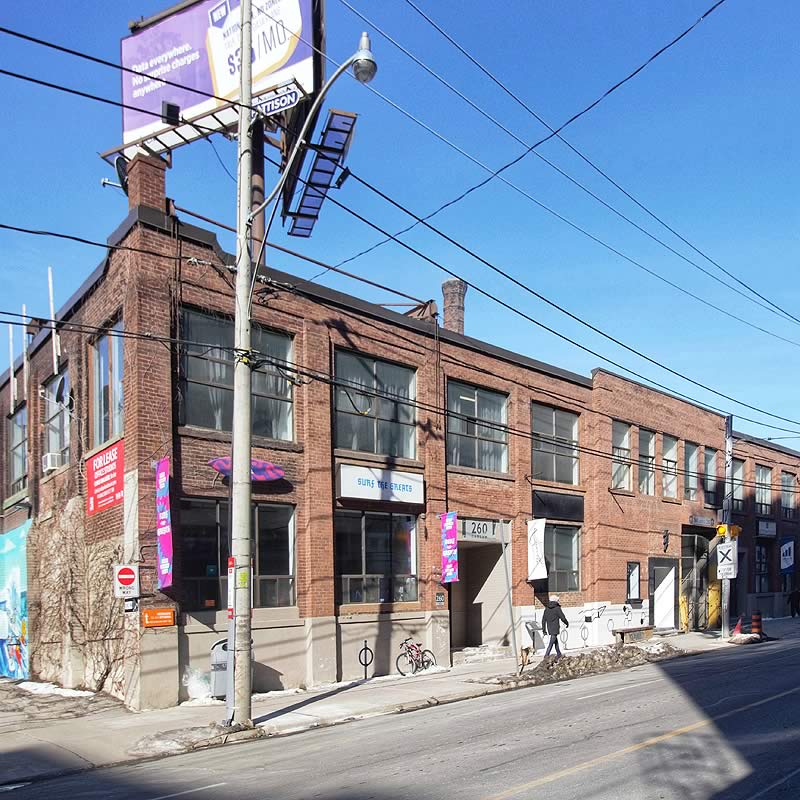
Left: Reliable Toy Factory,
258 Carlaw Ave., 1950s.
Canadian Museum of History
Right: Former Reliable Toy Factory at 260 Carlaw Ave., March 2019.
Image by Susan Drysdale
Fast Fact
Starchitect
It doesn’t look like much, but this factory was designed by E. J. Lennox, a star architect of the Victorian era who also designed Toronto’s Old City Hall, the famous Casa Loma mansion, and the West Wing of the Ontario Legislative Building at Queen’s Park.
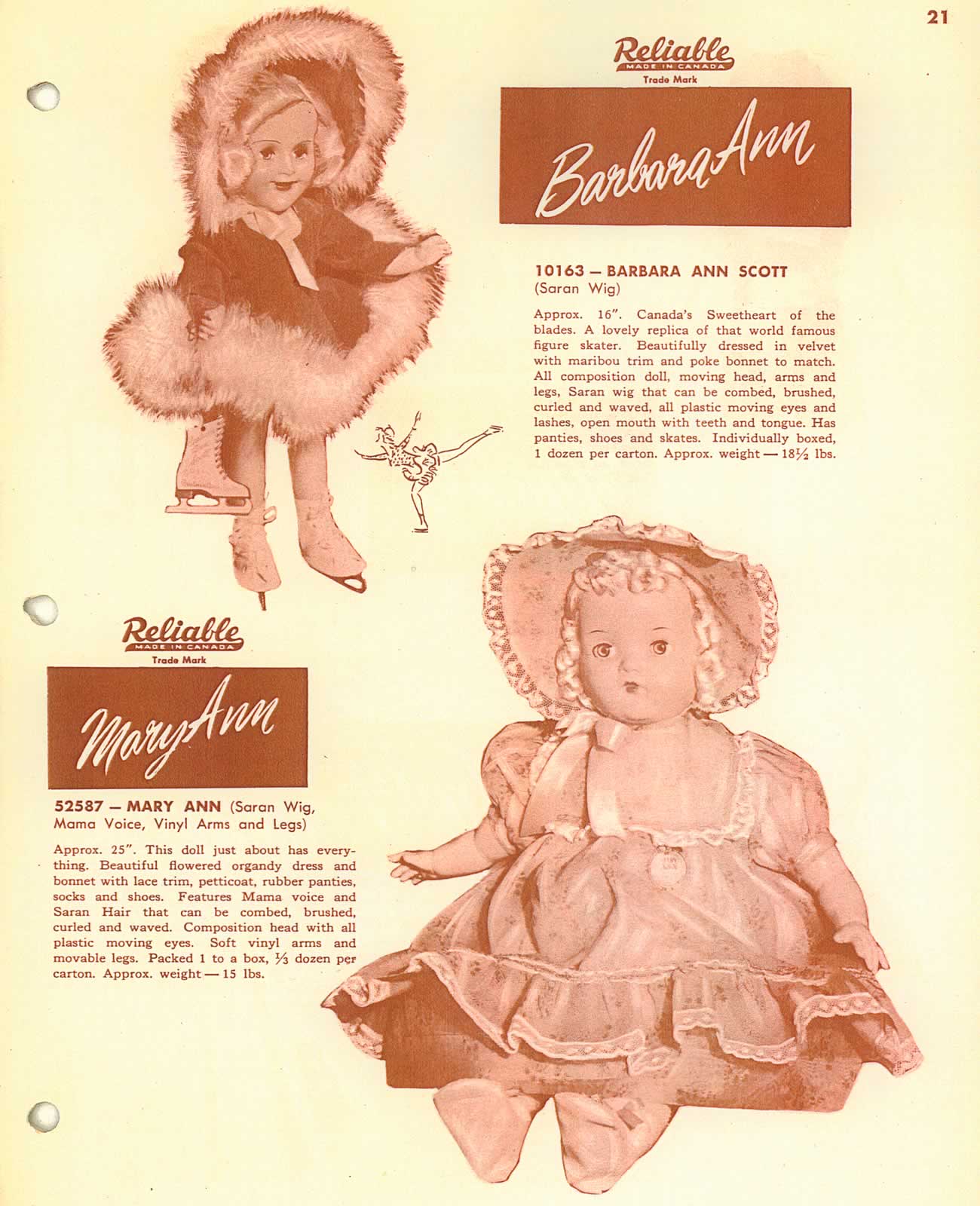
At its peak during the 1940s and ‘50s, the Reliable Toy factory made every part of every doll.
There was a garment mill that made miniature clothes, a hairstyling department, and facilities for making shoes, eyes, voice boxes, and squeakers.
Barbara Ann Scott and Mary Ann dolls,
Reliable Toy catalogue, 1950.
Canadian Museum of History
Baby Carrie, a little girl’s delight,
November 10, 1967.
Toronto Daily Star
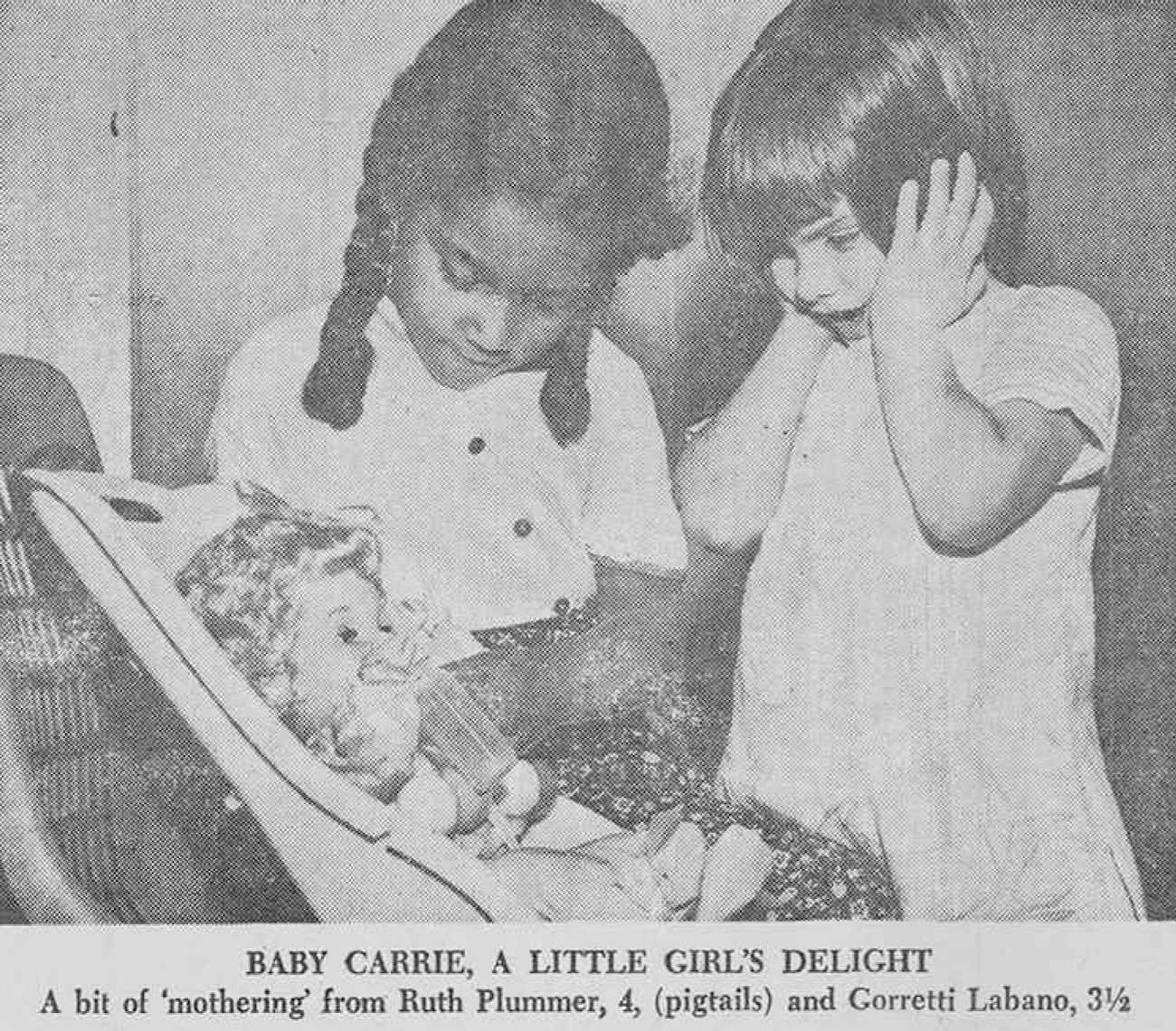
In 1954, the CBC reported from the factory as it ramped up production before the holidays.
Children across the country wanted a Carrie or Barbara Ann Scott doll for Christmas.
“Topsy” was one of many black dolls made by Reliable Toy for sale overseas. While the features of black dolls intended for the Canadian market used racially insensitive physical exaggerations, the dolls Reliable made for export were more realistic. Still, the name may refer to topsy-turvy dolls, a type of half-black, half-white cloth toy that originated on plantations in the American South.
“Topsy Baby,” Reliable Toy export
dolls catalog, 1950s or 1960s.
Canadian Museum of History
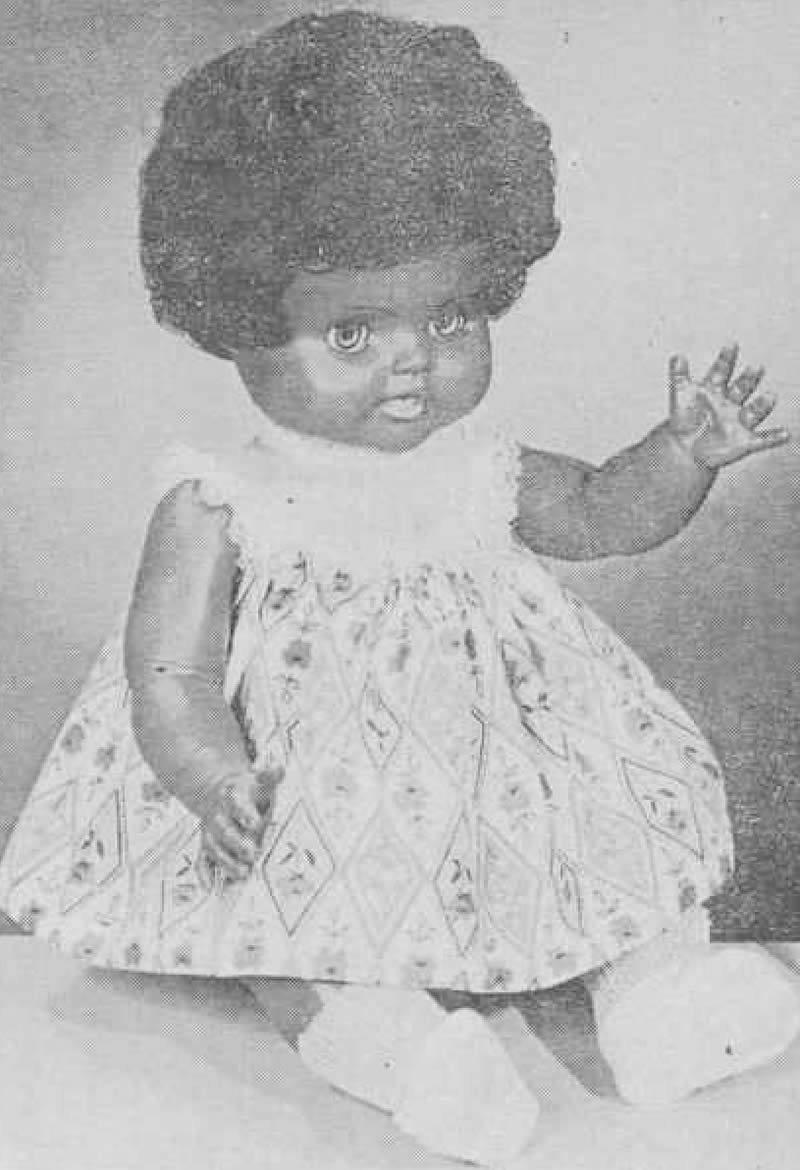
“Topsy Baby,” Reliable Toy export
dolls catalog, 1950s or 1960s.
Canadian Museum of History
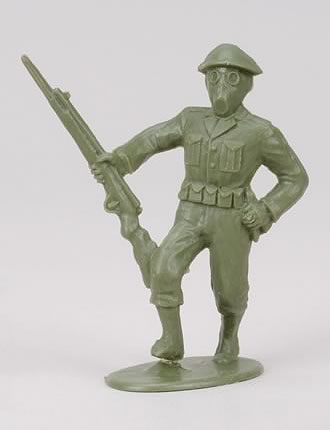
Plastic toy soldier manufactured
by Reliable Toy, 1950s.
Canadian Museum of History
During the Second World War, Reliable Toy adapted its production line to help the war effort.
The plant made plastic bullet tips, bayonet covers, and oil containers for the armed forces.
This plastics expertise gave the company an edge over its competitors. After the war it made some of the first plastic toys in Canada, which included plastic soldiers and the Reely Ride-em Tractor – a hot toy in 1961.
At Reliable Toy and factories throughout Toronto, men and women worked together, but in different jobs.
At Reliable Toy and factories
throughout Toronto, men and
women worked together,
but in different jobs.
The tasks performed by men and women reflected society’s expectations around gender roles.
Men often worked with heavy machinery on the production line or were foremen, managers, or engineers. Women worked in administration, packaging, or on production lines where precise work was needed. They were limited to detailed tasks as it was thought they could do finer work.
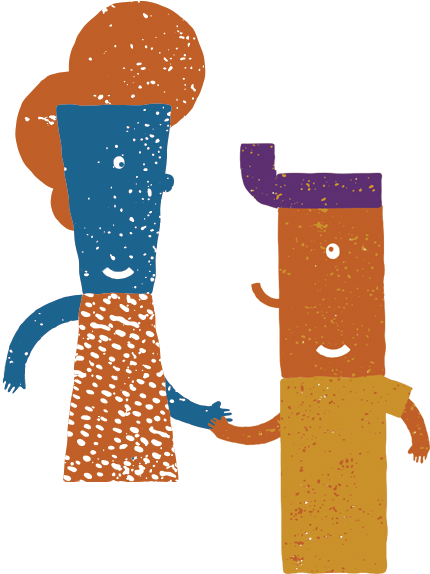
During the world wars, many more women entered the workforce in place of men who were serving in the military.
Many lost their jobs when soldiers returned and women were expected to go back to work at home.
Living Memory
“My sister, when she married her
husband, the both of them weren’t
allowed to work [at Reliable Toy] so
she just walked across the road to
Rolph-Clark-Stone and she
got a job there.”
Yvonne Nearing
who lived on Carlaw and whose
sisters worked at Reliable Toy

Living Memory
“It was a very home-like experience.
Everybody was concerned for everyone
else. Every year at Christmas time, the CEO
and president were all from the Jewish faith,
but nevertheless they threw a Christmas
party that was to die for. They were very
good to their employees.”
Yvonne Nearing


Check
it out ...
Read the plaque
RELIABLE TOY CO. FACTORY
Reliable Toy was one of the largest makers of dolls, plush toys, and novelties in the British Empire. Founded in the 1920s by Jewish brothers, Alex and Solomon Frank Samuels, the company moved here in 1935.
This complex was designed in 1907 by celebrated architect E. J. Lennox for the Phillips Manufacturing Company, which made picture frames, furniture, glass, and mirrors. Railway spurs at the rear connected the factory with the Grand Trunk Railway main line north of here.
At its peak during the 1940s and 50s, the Reliable Toy factory included a doll clothing mill, a hairstyling department, and facilities for making shoes, eyes, voice boxes, and squeakers. The Carrie doll and the Reely Ride-em tractor were among the company’s popular products at this time.
Reliable was also a leader in plastics technology. During the Second World War, the company made plastic bullet tips, bayonet covers, and oil containers for the armed forces. This expertise boosted the toy business, which was one of the first in Canada to sell plastic toys, some made from military surplus.
Allied Sign Letters bought Reliable Toy and merged it into its Viceroy toy division in 1985. The building now accommodates a variety of uses.

Ready to hit the next stop?
Continue north on Carlaw Ave. until you reach the pedestrian crosswalk. From here you can see the Wrigley building on the east side of Carlaw Ave. Stay on the west side of Carlaw Ave. for a better view.
Full steam
ahead!







